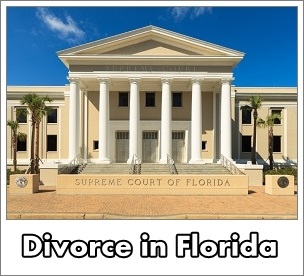
Divorce with Children
The changes that divorce may bring can be hard on children. If you are considering divorce, protecting your children during the process will be essential.
Although each family is unique, custody laws in Florida are generally uniform. Being a Court of Equity, Florida Family Courts, have the responsibility to weigh the “Best Interests” of children subject to an action using the “Best Interests Standard.” Because the “Best Interests Standard” applies, when parenting issues need to be settled, the court will often look at what option is really best for the children, weighing certain “parenting factors” to make that determination.
Is there Shared Custody, Sole Custody, and Full Custody in Florida?
Some states use the word “custody” to describe which parent will care for the children. In Florida, our law is less about traditional custody definitions and more about a “Parenting Plan.” A parenting plan will cover the traditional custody elements, often with greater specificity. In the best case, a clear parenting plan, that is well thought-out, should be agreed to by the parties. If the parties can’t agree to a parenting plan, the Court will decide and order a parenting plan in the best interests of the children, after hearing and weighing evidence that related to the “parenting factors.”
As of July 2023, there is now a rebuttable presumption that equal time-sharing is in the best interests of the children when creating a parenting plan. In order to overcome the presumption, a party must prove by a preponderance of the evidence that equal time-sharing is not in the “best interests” of the minor children. In determining the “best interests,” the Court will look to the factors listed in Fla. Stat. § 61.13.
For examples of how traditional custody terminology is applicable to Florida law, please click here.
Child Support in a Florida Divorce
In Florida, parents have a responsibility to support their children. Support can come in many different forms, but under Florida law, the court will often look to the “Child Support Guidelines” to determine how child support should be paid. The child support guidelines work as a “formula” to determine the child support amount. Generally, the parent who spends more overnights with a child, will often receive more child support. The Court may also order retroactive child support and the apportionment of other child expenses. A child support award generally continues until the child reaches the age of 18 or graduates from high school, unless there are special circumstances, such as the disability of a child.
Other Child Related Matters
If you have either minor or adult children from a previous marriage, and are involved in a family law case, you may need to update your will or estate plan. Further, if you are a step-parent, a step-parent adoption may help solidify your family bond and avoid trouble if you ever get divorced.
The State of Florida requires that each parent of a minor child take a 4-hour parenting course during the divorce process. Your judge may not finalize your divorce until you have completed the required parenting course, with the certificate of completion from the parenting course in the Clerk’s file. The required parenting class can be helpful, providing parents with information and tolls to empower them to effectively co-parent, and may be a great step toward developing a stronger parent-child relationship in the wake of a divorce.
Revised: Oct 2023
To speak to an experienced Divorce Attorney with Levinson & Capuano, LLC about your Florida Divorce concerns, please call (954)703-2110 or Click Here to Contact Us.
To learn more about Divorce in Florida Choose your Next Topic:
 |
 |
 |

